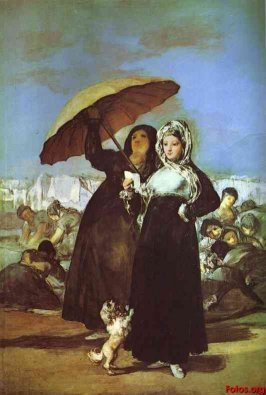Letters to the Editor
Thank you Frank, for a fun story on Death, Dying and Butterflies!
Eliah Rael
RE: A Streetcar Named Destiny
Dear Frank,
Thanks for letting me know and congratulations on your story collection publication. I've just downloaded a copy and look forward to taking a closer look.
Best wishes,
Gwen Ellery
fictionista & humorista
For all lovers of good literature, contemporary and not so contemporary. Sound like quite a good mix.
Richard Lord,
Singapore
RE: Men, Women and Computers Thanks for the latest SCR. You are a great kids story teller Frank. I haven't read all of it yet - I must say I don't like 'MEN, WOMEN & COMPUTERS' by Valdemar W.Setzer, much. I dislike any kind of stereotyping and his old fashioned style was a little silly... I enjoyed reading (our) Mark's article too.
Pamela Shanks
RE: Segregation
Very interesting article. I�m a little younger than you so I was in high school in the 50s. But I sort of heard what it was like. Though not the vivd way you tell it.
Sue Feingold
USA
Thanks Frank for this honest eye-opener; not often that one reads stuff that has not been poshed up to make the author look good. It gives us who were not around at that time to get a feel of what life felt like - and of how the fabric of society was ( and is) knitted by all who partake in it. After all, you were unwittingly at that time in the double role of witnessing racism in action AND reproducing it. Times have and have not changed, indeed!
("R�ckschau" is a wonderful tool, day by day and year by year�.)
Helmut Reichardt
Germany
RE: Open Letter
Dear people,
I have only one remark. I just wonder if the anthroposophical society can distinguish the voice of Christ in this time if He would ask something. For example the seeer Vassula Ryden says that the Christian Tradition should have one date for Easter to celebrate. Is it even possible in the view of the anthroposophical society that Christ could ask such a thing and that we could recognize his voice? If the answer would be that this is methodologically impossible, then I think your Society has a big problem. I think that you understand the relation with the controversy between von Halle and Prokofieff.Yours sincerely,
Hans Jansen
RE: Ven, Nena and Elizabeth Tayor � a Memoir
What a beautiful story!
Jim Kolbe
RE: Stan the Man in New York
I was very pleased to have stumbled across your [Tom Mellett's] article on Stan Musial. I grew up in the St. Louis area and got to see Stan play when I was a kid. St. Louis has a very large Catholic population and generally regarded the following in order of importance... God, Stan Musial, and then the Pope. A Catholic friend of mine once pointed out that all three had one thing in common: None of them was ever ejected from a ballgame. Bob Costas asserts that outside of St. Louis, Musial is the most underrated player of all time. I agree, but with a bit more explanation. It's not that he's underrated as much as he's the most forgotten superstar. He never played in a televised World Series, nor on a New York or Boston roster. And as noted by Tim McCarver, he didn't play in a World Series for the last 18 years of his career. Yet his hitting achievements were nothing short of remarkable. Many fans are aware that of his 3630 hits, exactly 1815 were at home and 1815 were on the road. However, here are some things that go overlooked: He batted .331 lifetime, but also exactly .331 against both right-handed and left-handed pitching. When he won the first of his three MVPs, he was the youngest player to do so (age 22). Had he not served in the Navy during WWII, he'd have been in the 500 home run club. Had a rain-out not cancelled out a homer, he'd have won the Triple Crown in 1948.
Musial is the only player in history with 400 or more homers to strike out less than 700 times. He became - and is still - the only player to have fewer than 20 strikeouts in a season of 700 or more plate appearances when he struck out only 18 times in 1943. Think about that... a batter who averages 3 strikeouts per month, one about every 10 days. Ever since I learned that, I've had a comical fantasy image in my head. I imagine it's 1943 and the manager of an opposing team is on the train to St. Louis for a series against the Cardinals. At a stop along the way, he picks up an evening paper to read the box scores. He scans to the St. Louis game and thinks, "God help us. Musial struck out this afternoon.".
Much is made of the comparison to DiMaggio, who retired with a .325 lifetime average. Had Musial retired at the same age as DiMaggio (38), his lifetime average would have been .342. Had he retired after 13 seasons, like DiMaggio, his lifetime average would have been .344. While DiMaggio was clearly the better home run hitter, Musial was a line drive hitter, and much better to the opposite field. He was also a better base runner, stretching singles into doubles and doubles into triples. DiMaggio cleared 40 doubles in two seasons. Musial did it 8 times and in three of those seasons he cleared 50. DiMaggio twice had 15 triples in a season. Musial twice had 20. And this lands us at my favorite statistic, and perhaps the most significant when discussing how Musial is overlooked: Of the 13 primary statistical batting categories, Musial is the only player to rank in the top 30 of all time in each of them. That may sound fairly bland, but let's add some context... No other player in history even ranks in the top 60 of each! As an "overall hitter" he really does stand alone.Thank you for that article. It was particularly nice to read coming from a New York fan.
Regards,
Jeff Eisen
USA
Dear Frank,
I have just found �SouthernCrossReview� and am very grateful for its content!
Please place me on the subscriber list,
Many thanks,
Simon (Figg)
Dorset, England.
Home

